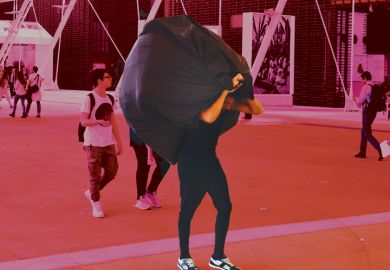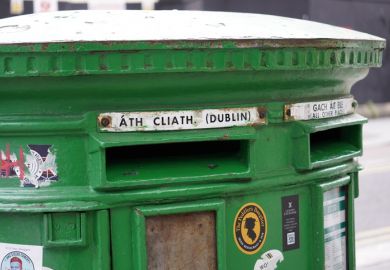Ethnic minority students at UK universities are significantly less likely to say that lecturers had made their subject interesting and to think that assessment on their course was fair, a study says.
Analysis of the results of the National Student Survey found that the ratings given on these issues by ethnic minority students were significantly below an expected benchmark score that controlled for other variables such as gender and subject. White students, in contrast, gave scores that were significantly above their benchmarks.
The study, conducted by the English higher education regulator, the Office for Students, may shed some light on the reasons behind persistent gaps in attainment between UK-domiciled white and ethnic minority students on UK degree courses.
On marking and assessment, 75.3 per cent of white students who completed the survey in 2019 agreed that it had been fair – 1.6 percentage points above the benchmark – but the figures for Asian and black students were 67 per cent and 67.8 per cent respectively. These were 5.7 and 6 percentage points below the respective benchmarks.
The NSS cannot reveal whether assessment was actually unfair to ethnic minority students, but changes to assessment, such as anonymous marking, have been proposed as one potential way to close the attainment gap.
On whether staff made their subject interesting, white and black students’ agreement was benchmarked at roughly the same level, 82.8 per cent and 83 per cent respectively. But white students’ actual scores were 1.2 percentage points above their benchmark, and black students’ ratings were 3.6 percentage points below. All ethnicities other than white students gave scores significantly below their benchmark.
Academics and students have repeatedly warned that university curricula remain dominated by white, Western ideas and writers and therefore may struggle to engage learners from more diverse backgrounds.
The OfS analysis also reveals that part-time students are significantly less likely to say that they felt part of a learning community or that their feedback was acted upon, compared with full-time learners. Nicola Dandridge, the OfS’ chief executive, said that “while the overwhelming majority of students report high levels of satisfaction with the academic support they receive, some do not”.
“Different students have different priorities and needs, and universities and colleges should carefully consider areas where some groups may be less well served than others,” she said.
The OfS has previously announced plans to pilot asking students from all year groups to complete the NSS, not just final-year learners. Its new paper says that the regulator will consult on whether the NSS could be used to ask students if they are satisfied with the support that universities provide on issues such as mental health and well-being.
Register to continue
Why register?
- Registration is free and only takes a moment
- Once registered, you can read 3 articles a month
- Sign up for our newsletter
Subscribe
Or subscribe for unlimited access to:
- Unlimited access to news, views, insights & reviews
- Digital editions
- Digital access to THE’s university and college rankings analysis
Already registered or a current subscriber?








